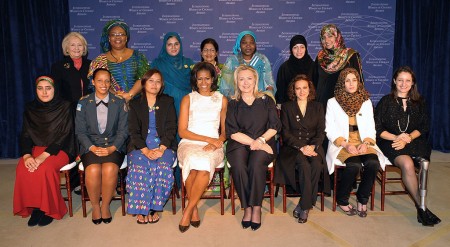
This interview was originally published by E-International Relations on 6 March 2016.
J. Ann Tickner is Distinguished Scholar in Residence at the American University. She is also a Professor Emerita at the University of Southern California where she taught for fifteen years before coming to American University. Her principle areas of teaching and research include international theory, peace and security, and feminist approaches to international relations. She served as President of the International Studies Association from 2006-2007. Her books include, A Feminist Voyage Through International Relations (Oxford University Press, 2014), Gendering World Politics: Issues and Approaches in the Post-Cold War Era (Columbia University Press, 2001), Gender in International Relations: Feminist Perspectives on Achieving International Security (Columbia University Press, 1992), and Self-Reliance Versus Power Politics: American and Indian Experiences in Building Nation-States (Columbia University Press, 1987).
Where do you see the most exciting research and debates happening in your field?
I think the most exciting research is being done at the margins by scholars who are pushing the disciplinary boundaries of what we think of as IR into areas such as historical sociology, post-colonialism, race and gender. Although the mainstream US discipline is still quite hegemonic, I believe this hegemony is somewhat on the decline and there is more space for critical perspectives.
There are good revisionist histories that tell non-conventional stories about the origins of the discipline. And there is a great deal of exciting critical work being done by scholars in other parts of the world that attempts to construct an IR that reaches beyond geographical and disciplinary boundaries. The Worlding Beyond the West series edited by Ole Waever and Arlene Tickner and by Tickner and David Blaney is a good example. Other examples are recent work on race, empire and gender. It is quite astonishing how IR has erased imperialism and the anti-colonial struggles of the twentieth century from its historical memory. These are issues that are fueling so many of today’s conflicts.
